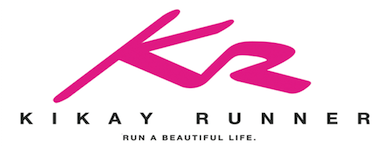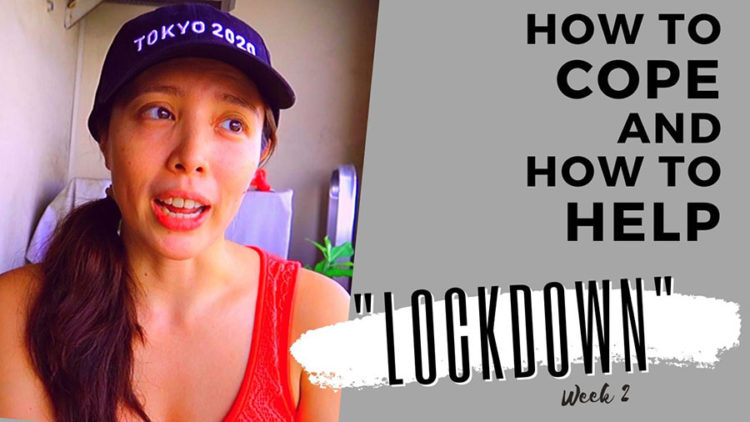How is everyone doing? We are closing in on the end of Week 2 of the community quarantine period here in Metro Manila and I’m pretty sure many of my fellow runners and triathletes are a little stir-crazy.
For this week’s blog post and vlog I’m focusing on ways we can cope and ways we can help. As someone not on the frontlines of healthcare (and genuinely regretting not studying to be a doctor), I’ve had the itch to be of use even when all I can do is sit on my hands and twiddle my thumbs on my smartphone.
Watch the vlog below, or read on for some in-depth musings.
How to Cope in Community Quarantine
I’ve been doing a lot of reading lately trying to understand what’s going on with myself. I have not felt like myself: I am physically tired even when not doing much activity, sometimes I just feel the need to cry at night, and some of the things at work I could do in my sleep now need special attention. According to an interview the Harvard Business Review did with grief expert David Kessler, what we’re feeling right now is a form of grief. We’ve lost a lot of things in this short period of time the coronavirus disease has held sway all over the world, and we could still lose a lot more — hence the grieving.
Kessler emphasized the need to process these emotions we are feeling, and how to deal with them.
There is something powerful about naming this as grief. It helps us feel what’s inside of us… When you name it, you feel it and it moves through you. Emotions need motion. It’s important we acknowledge what we go through… Sometimes we try not to feel what we’re feeling because we have this image of a “gang of feelings.” If I feel sad and let that in, it’ll never go away. The gang of bad feelings will overrun me. The truth is a feeling that moves through us. We feel it and it goes and then we go to the next feeling. There’s no gang out to get us. It’s absurd to think we shouldn’t feel grief right now. Let yourself feel the grief and keep going.
He mentioned some ways of coping with these emotions that should be familiar to many an endurance athlete, because they’re also coping strategies we go to during long and tough races.
Come into the present. Let go of what you can’t control. — In a race when our minds wander, we lose focus and capacity to do the things that need doing now. “Am I eating and drinking properly? Am I managing my effort appropriately? Have I prepared for eventualities?” These are the things that keep our minds from jumping all over the place and they help us stay on track toward our goal. At the same time, we can be mindful that there are some things out of our control and we can let go of the burden of worrying about them. If we stay present then we can adapt to situations as they come.
Be compassionate. — How many times have we lifted and been lifted up in a race when we encourage a fellow athlete? Everyone is stressed, and with stress many people don’t think as clearly as they are capable of doing. We need to give each other (and ourselves!) some slack.
How to Help in Community Quarantine
If you’re one of the percentage of Filipinos who can afford to stay at home and have access and resources to food and shelter, consider yourself blessed. My opinion is that we are blessed so we can bless others. And so I’ve tried to help our country’s efforts to fight COVID-19 in my own small ways.
- CloudEats — prepares hot meals for hospitals/medical staff, government agencies and other front liners. Select your order to be delivered to our COVID-19 heroes. Prices are inclusive of ingredients, packaging, delivery, payment fees and VAT. CloudEats makes zero profit from this initiative.
- Kaya Natin! Movement Donation and Fundraising Campaign — in coordination with the Office of the Vice President is organizing a donation and fundraising campaign for personal protective equipment (PPE) and care/food packs for health workers and frontliners fighting COVID-19. Each PPE Daily Set Ticket consists of one N95 mask, one gown, two sets of gloves, two pieces of head covers, two sets of shoe covers and one pair of goggles. This is only good for one (1) health worker. Each Food and Care Pack Ticket will help one health worker/frontliner per day.
- Help From Home — a non-exhaustive information hub that helps folks at home support those who aren’t: the frontliners and families at risk in the Philippines. This website features a growing directory of initiatives as well as regular updates on which cities and hospitals are most in need of your help.
Unlike the assumption that disaster situations devolve into social chaos as humans take an “every man for himself” attitude (justifying draconian measures to keep order), there’s a growing body of research literature that shows how humans as social creatures display “collective resilience” which includes such features as mutual support and coordination, which in turn provide a basis for collective agency and adaptive action.
But the myth matters because it can lead people to take counterproductive actions and adopt policies. The simple truth is we are a fantastically social species and threats only fuel our instinct to pro-social behaviour. An overview here: https://t.co/w9yf2aAfiF 2/x
— Dan Gardner (@dgardner) March 26, 2020
Forgot to mention the most dramatic illustration: It was widely believed in the 1930s that mass aerial bombardment of cities would produce panic and social collapse. It didn't. Anywhere. In fact, it created the "Blitz spirit" everywhere strategic bombing was inflicted. 5/x
— Dan Gardner (@dgardner) March 26, 2020
Whether it’s staying home and adhering to physical distancing guidelines to keep people from our community safe from COVID-19, or pouring resources into helping frontliners fight the virus, and helping families at risk to weather these times, now more than ever we all need to work together.

